NHS Wales: Health boss apologises to patients for 'poor' experience
- Published
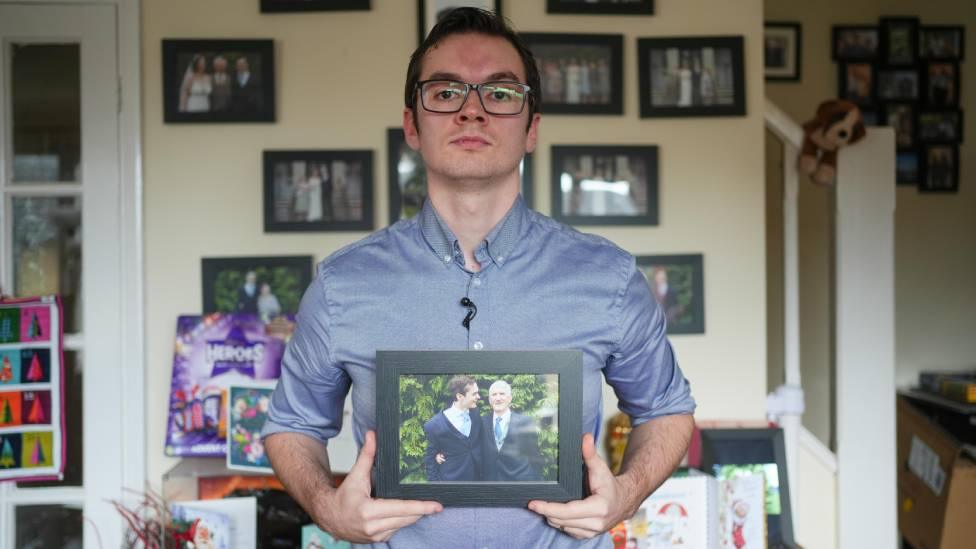
Steve Parsons's grandfather suffered a cardiac arrest while being driven to hospital
Wales' NHS chief executive has apologised to patients who suffered a poor experience as hospitals struggled with demand.
Judith Paget denied that the service had underprepared for the "unprecedented" pressure in the service.
Her comments come after a man spoke of having to carry his grandfather into A&E after he suffered a cardiac arrest.
Ms Paget apologised to him for the "hugely distressing" situation.
She said a controversial decision to support the discharge of people without a care package was taken to "try to improve things" for patients, their families and staff.
Meanwhile First Minister Mark Drakeford denied there was a lottery for emergency care.
"I would like to apologise to patients and their families who've had very poor experience over the last couple of weeks," Ms Paget told BBC Wales said.
"It's not anything any of us want to see. And we carry the burden of those concerns with us."
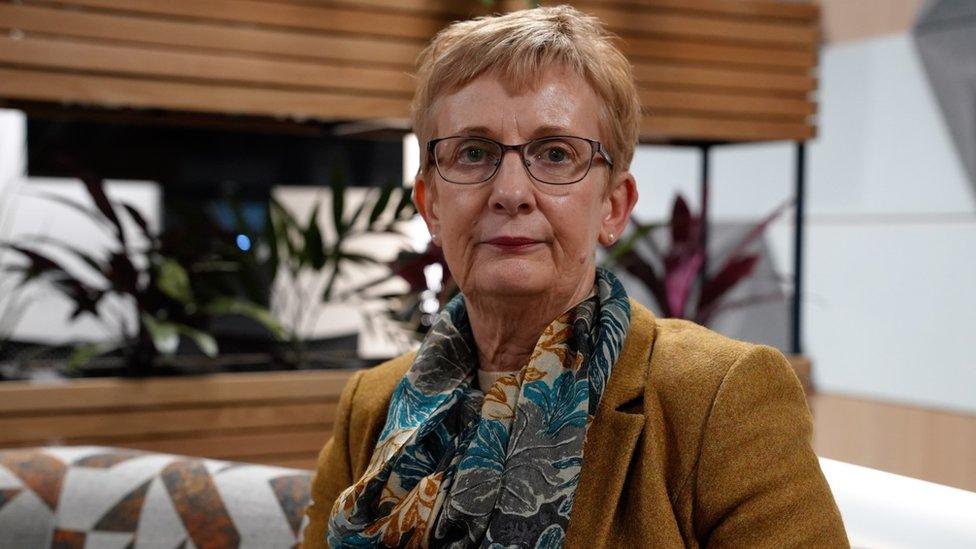
Judith Paget said 27 December was "one of the busiest days in our system"
Six hospitals had been effectively classed as suffering a "critical incident" by Wednesday, although the pressure has since lessened.
Ms Paget said the 27 December was "one of the busiest days in our system" with 8,500 calls to 111 and 210 serious 'red' calls to 999.
The challenge for the NHS that day was "unprecedented", she said, as had been the week prior to Christmas, with 800 more patients in hospital on Christmas Day than in 2021.
Resuscitation and emergency departments were full, ambulance handovers were delayed, and responses in the community to 999 calls were "longer than we wanted," Ms Paget explained.
"We were in surge for critical care for that time, so we had to open additional critical care beds, and staff were putting extra patients on wards to make sure they could try and keep the system going."
On Wednesday it emerged the Welsh government had told senior NHS staff they could discharge people who were well enough to leave, even if they did not have a package of care ready.
Ms Paget said the decision was taken on a "balance of risks".
She acknowledged that it presented "huge dilemmas", but argued that staff told her they needed to discharge more people from hospital to open-up capacity.
"From a hospital point of view we need to make sure that we use the space we've got for the people who are the highest risk and in need for care, and support the people who are the lowest in risk to leave our hospitals."
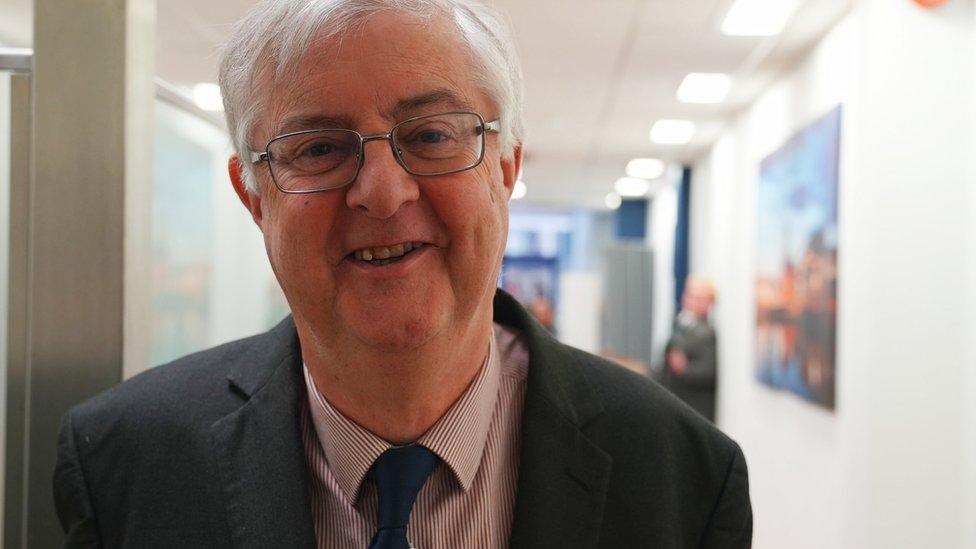
First Minister Mark Drakeford has denied that the public faces an emergency care lottery
The head of the Welsh government, Labour's First Minister Mark Drakeford, denied that people in Wales face an emergency care lottery.
He said because hospitals are full of "low-risk" patients, high-risk patients "are struggling to get through the front door".
Mr Drakeford said there was a "real urgency" to reform social care, but said short term changes were also required.
"We have vacancies in care homes here in Wales, we have people waiting in a hospital bed simply waiting for tests to be carried out, which could just as easily be carried out by people being at home, and coming in when the test is needed for them.
"So the system needs to change those immediate things to relieve the pressure and then in the longer run we need to find a different way to pay for social care."
He added that an ageing population and fewer people of working age meant it was a problem that was not going to go away.
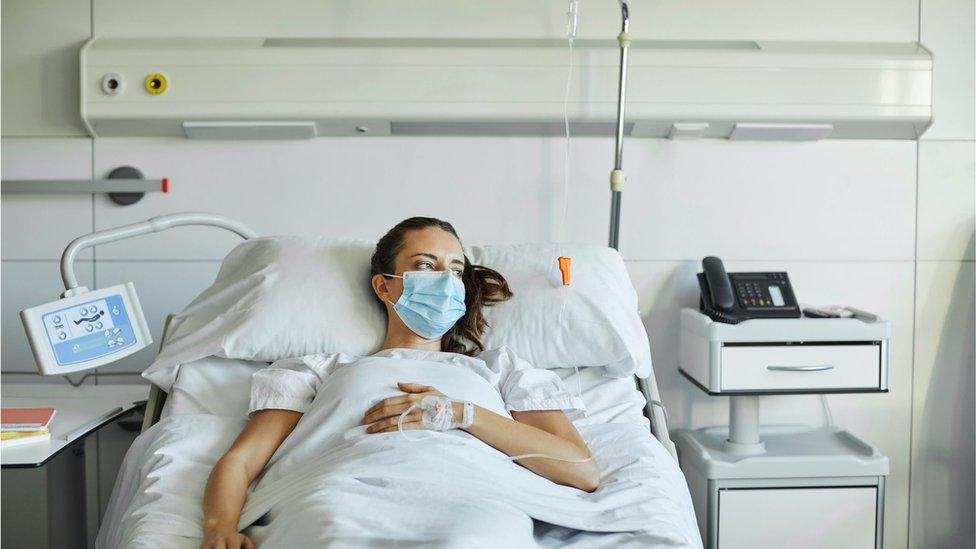
Health boards across Wales have said they have hundreds of patients well enough to leave
Mr Drakeford said thousands of people in Wales who needed emergency care were attended to right across the system and it was not a lottery.
"Every single day people get help here in Wales, not simply through hospitals and through ambulances arriving, but the fantastic work our GPs do in the community - the 111 system, all those other ways the system can help.
"But the system is under enormous pressure, there are things every one of us can do to help with that, the system itself needs to take those immediate actions that have actually helped to stabilise the position in Wales over the last couple of days."
Welsh Conservatives' spokesman for health, Russell George, said: "It is very surprising to hear to Mark Drakeford deny reality, reading a horror story about people in pain not able to receive it is a daily occurrence in Labour-run Wales.
"The latest figures say the ambulance response times are the worst on record, with less than half of ambulances arriving at red-calls in the target time, meanwhile, Wales consistently records worse A&E waits than England and Scotland.
"This is not the fault of hard-working NHS staff but 25 years of Labour mismanagement in Wales."
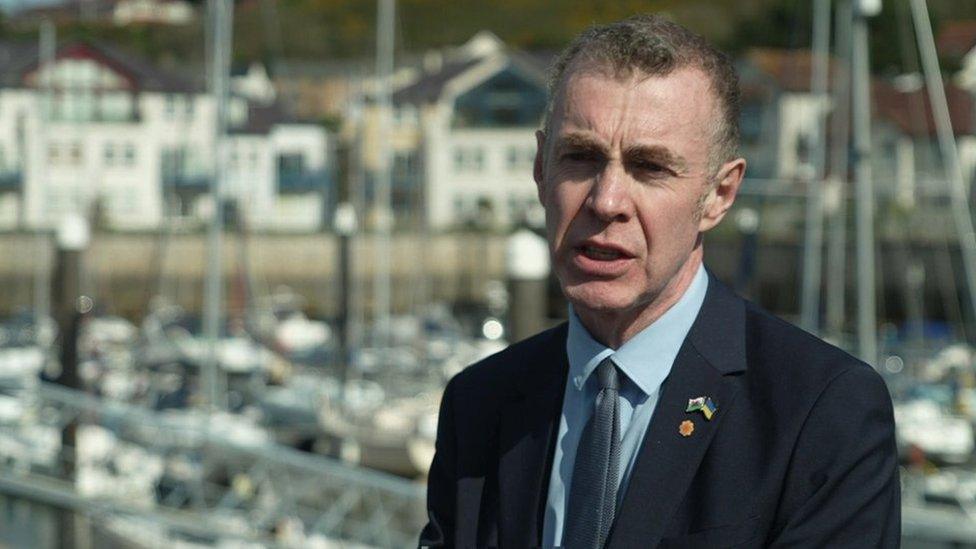
Adam Price said the NHS in Wales is in crisis
Plaid Cymru leader Adam Price said: "The NHS in Wales is in crisis - to claim otherwise is to do a great disservice to the many hard-working health and care staff that are telling us otherwise.
"When there is too much work for too few people, it is inevitable that service levels will start to vary wildly around the nation. But to refute this is to deny there is crisis. To refer to 'pressures' is to ignore the many stories around Wales that testify that the system is broken. "Our health service needs healing and it will take more than 'hope' and good wishes for it to get better.
"The Welsh government must use all the levers at their disposal to do something - anything - to show they understand the scope of the problem, and that our NHS is a priority for them."
- Published4 January 2023
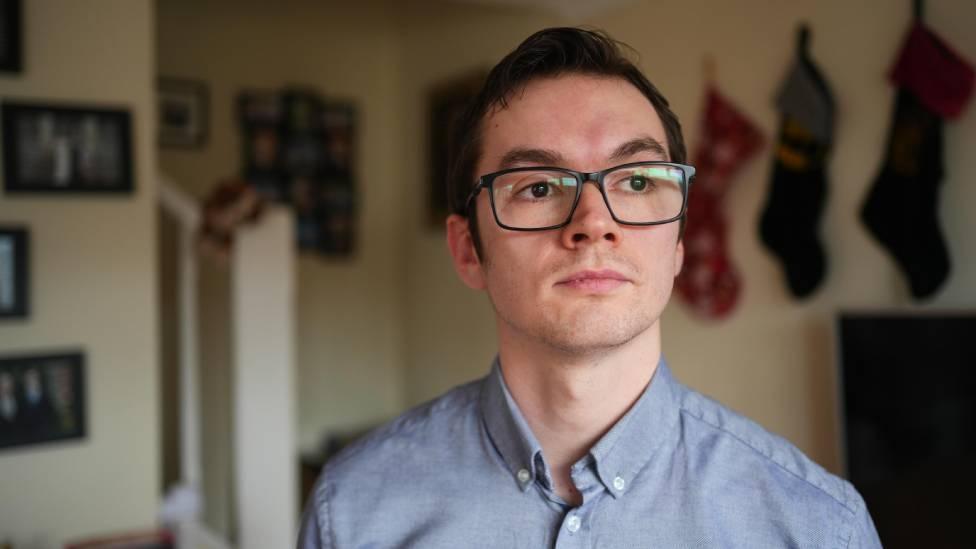
- Published4 January 2023

- Published4 January 2023
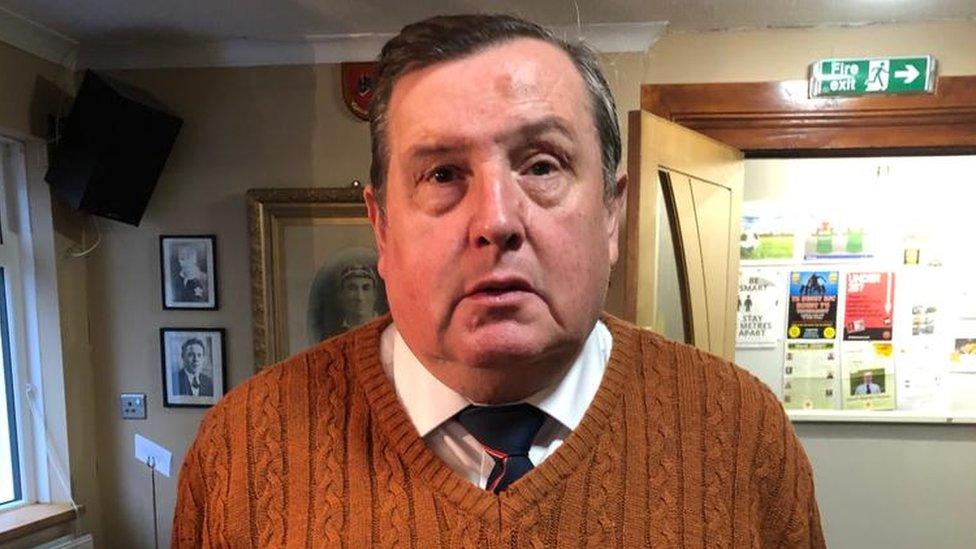
- Published3 January 2023
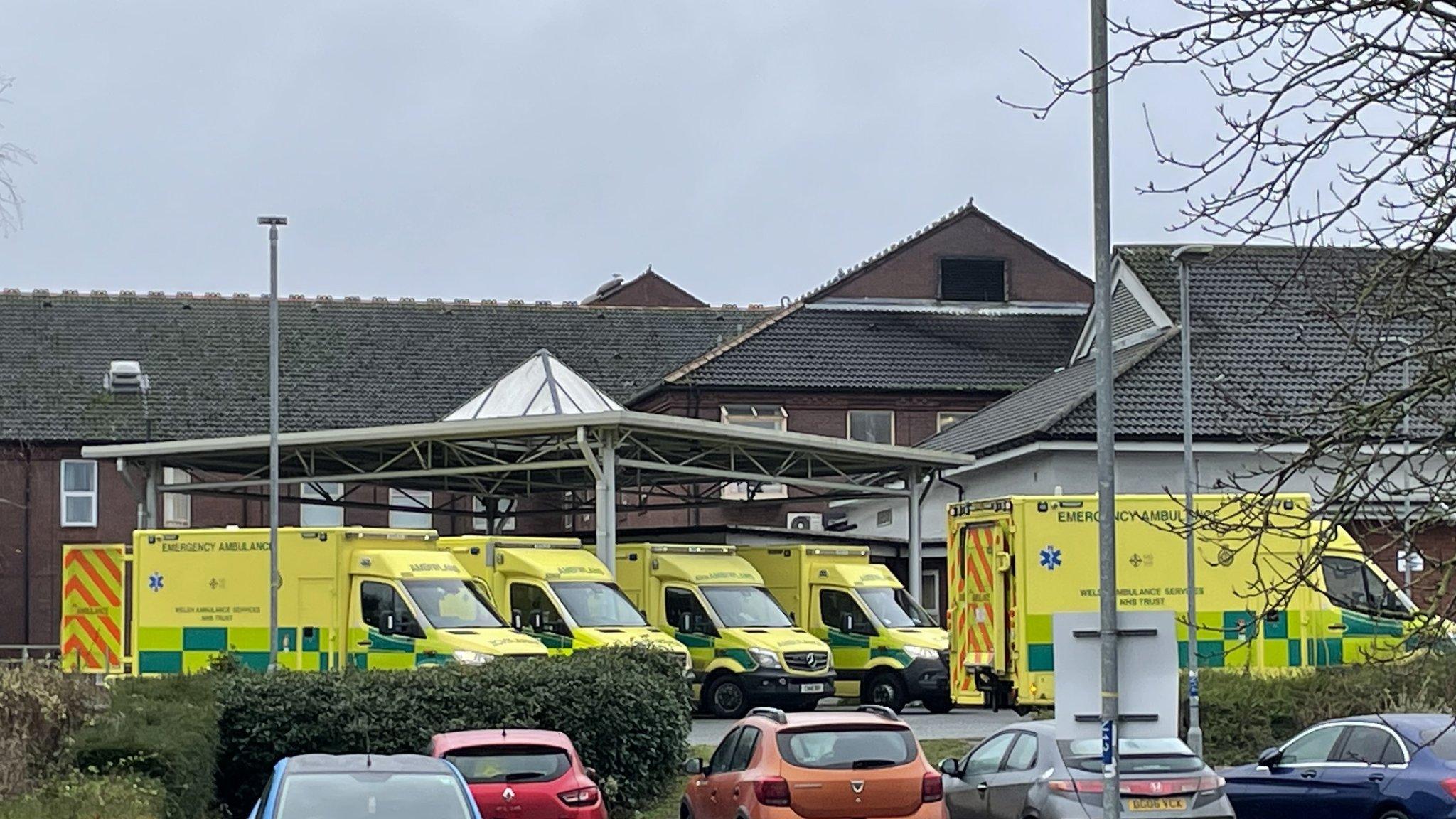
- Published2 January 2023
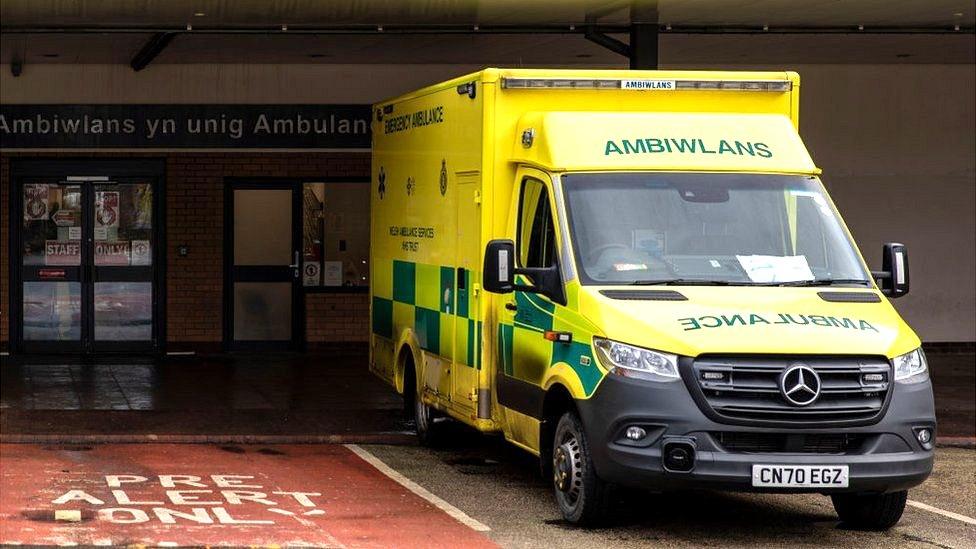
- Published31 December 2022
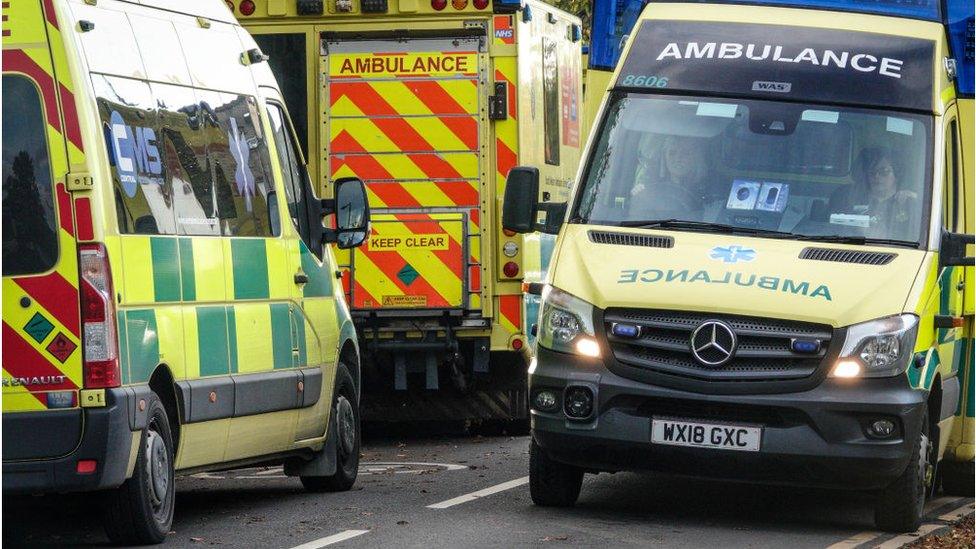
- Published31 December 2022
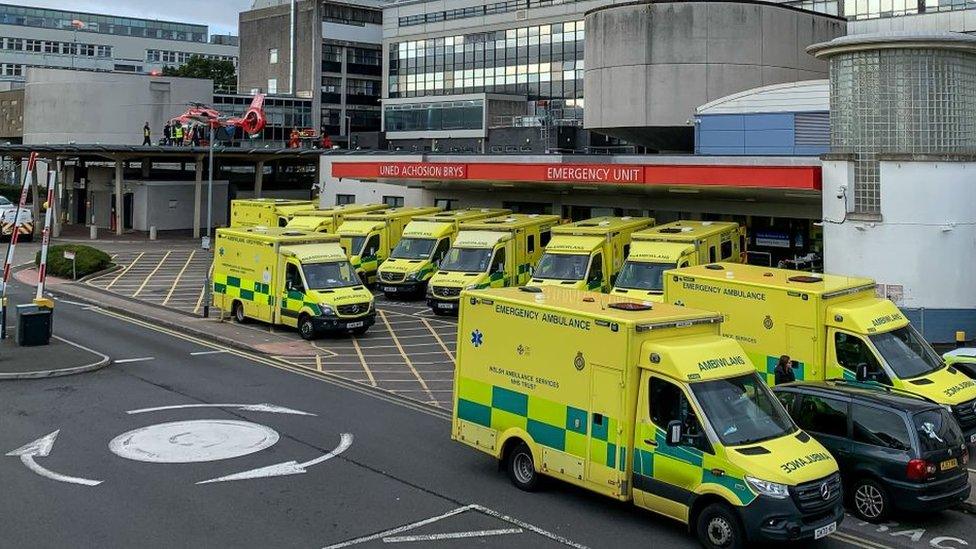
- Published30 December 2022
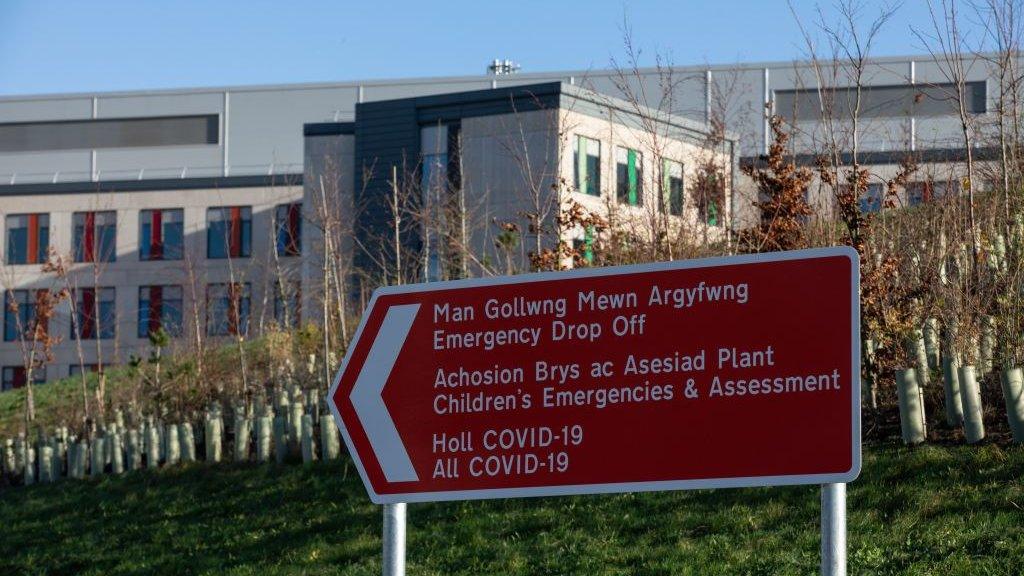
- Published29 December 2022
